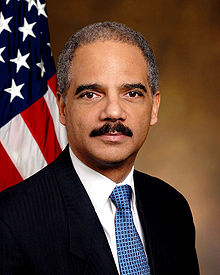Summary: Patients potentially infected with Ebola have the right to experimental treatment outside of randomised controlled trials. Consent should be sought while they are competent if it is anticipated that they will lose competency through the disease. In the most extreme emergencies, experimental treatment could be given without consent in the public interest. However, in such extreme emergencies, such if the virus were to mutate to become very highly transmissible, selection of patients for such trials should be on a principle of justice. This would generally require selecting patients with the worst prognosis as initial subjects. Whilst the current outbreak has been declared an international health emergency, it does not warrant over-riding standard ethical principles of consent and autonomy.
—-
WHO are convening a meeting next week to discuss the use of untested treatments for the current Ebola outbreak, which it has declared to be an international public health emergency.
Dr Marie-Paule Kieny, Assistant Director-General at the World Health Organization explained “We are in an unusual situation in this outbreak. We have a disease with a high fatality rate without any proven treatment or vaccine,”
With a fatality rate of recent outbreaks at around 50%, and current treatments consisting of little more than rehydration, it is easy to see why this experimental approach is an attractive option. Jeremy Farrar, David Heymann and Peter Piot argued convincingly in favour of such measures.
However, there are a number of diseases which meet Dr. Kieny’s criteria of “a high fatality rate without any proven treatment or vaccine”. While Kieny is referring to infectious disease, sufferers of other diseases have campaigned for many years for access to untested medicines. Along with several colleagues, I wrote a paper on this subject with Les Halpin, who recently died from motor neurone disease, having campaigned for access to medicines for many years
The case for
I have argued that, when a patient is facing a certain death from an incurable disease, the relative safety that randomised controlled trials provide is unnecessary- especially when the payoff is a placebo group of patients who receive no benefit at all.
One common reason in support of randomised controlled trials is safety. This is true for most patients: patients for whom there are other good treatment options, or whose disease is not itself life-threatening. But for some patients, this concern is a cruel irony. Their disease is so overwhelmingly unsafe that any risk is outweighed by potential benefits. Udo Schuklenk reports Martin Delaney, a trial patient for AIDS who described the situation vividly:
It is as if I am in a disabled airplane, speeding downward out of control. I see a parachute hanging on the cabin wall, one small moment of hope. I try to strap it on, when a would be government employee reaches out and tears it off my back, admonishing, ‘You cannot use that! It does not have a Federal Aviation Administration sticker on it. We do not know if it will work’
Read More »Ethics of Ebola and Potentially Life-Saving Experimental Treatment

